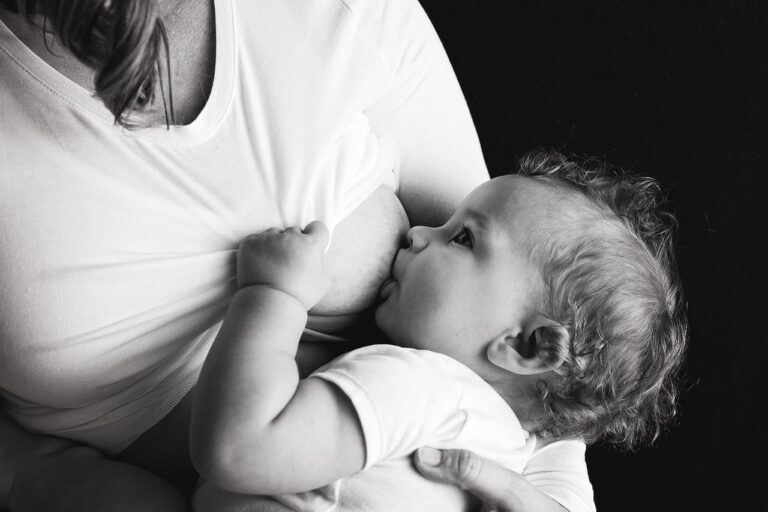Can I Eat Chocolate While Breastfeeding
Skip To The Following Sections
- Can I Eat Chocolate While Breastfeeding?
- Decoding the Types of Chocolate
- The Good News and Not-so-good News: Health Benefits and Potential Risks
- The Caffeine Conundrum: Chocolate vs. Coffee vs. Other Caffeinated Beverages
- How Chocolate Affects Breast Milk Supply and Quality
- Reading Your Baby’s Signals: Side Effects of Chocolate Intake on Breastfed Infants
- Moderation is Key: How Much Chocolate is Safe?
Can I Eat Chocolate While Breastfeeding?
Certainly, for many new mothers navigating the complex tapestry of early parenthood, the answer is a comforting “yes.” Amidst sleepless nights and the ever-evolving dance of motherhood, the allure of a sumptuous chocolate piece offers a brief, yet sweet, escape. Enriched with cocoa solids and the promise of serenity, chocolate stands as a coveted comfort food, an oasis in the bustling journey of raising a newborn.
The chemistry of chocolate delves deeper into why it’s such a sought-after treat. It’s not just about the tantalizing taste; chocolate boasts serotonin, a compound known to uplift moods and sprinkle a touch of calm onto the weary nervous system. As a breastfeeding mom, these fleeting moments of tranquility are precious. The dance of cocoa and sugar offers more than just flavor; it’s a ritual, a brief pause, a testament to the simple joys amidst the whirlwind of new motherhood. So, while moderation remains key, new moms can certainly indulge in their chocolate cravings without a shadow of guilt.
Decoding the Types of Chocolate
To the uninitiated, chocolate might simply be a monolithic category of a sweet treat. Yet, a deeper dive reveals a myriad of variations, each with its distinct flavor profile, nutritional value, and allure. Dark chocolate, brimming with rich cocoa solids, presents a bittersweet symphony, drawing a clear distinction from its sweeter cousins, milk chocolate and white chocolate. While dark chocolate boasts a higher theobromine concentration, milk chocolate marries cocoa with cow’s milk, yielding a creamier texture and taste.
The kaleidoscope of chocolate varieties also tells a tale of caffeine content. While all types contain caffeine, the levels vary, with dark chocolate generally leading the pack. The sugar story further complicates this intricate dance. White chocolate, devoid of cocoa solids, compensates with a higher sugar content, making it an undeniably sweet indulgence. As we journey through the diverse world of chocolates, understanding these nuances can elevate our appreciation and guide our choices, especially when considering the health effects of regular chocolate consumption.
The Good News and Not-so-good News: Health Benefits and Potential Risks
For the chocoholic at heart, there’s good news. Beyond its status as a divine treat, chocolate, especially the dark variant, houses a trove of health benefits. Rich in antioxidants, it acts as a formidable ally against oxidative stress. Add to this the presence of beneficial fatty acids, and it’s no wonder that chocolate has been lauded for its potential heart-healthy attributes. Notably, for breastfeeding moms, understanding these health benefits offers more than just a feel-good factor; it can potentially influence mother’s milk quality.
However, as with most delicacies, chocolate’s tale isn’t without its caveats. The shadow of heavy metals, like lead and cadmium sometimes found in chocolate, raises eyebrows and concerns. These traces, linked to the soil where cacao trees flourish, especially in parts of South America, beckon for vigilance. Furthermore, the potential risks of food allergies can’t be overlooked. As chocolate traverses from being a delicious treat to a regular staple in a new mom’s diet, being mindful of these nuances ensures both pleasure and safety.
The Caffeine Conundrum: Chocolate vs. Coffee vs. Other Caffeinated Beverages
Caffeine, a stimulant heralded for its wakefulness-promoting prowess, navigates its way into our systems through various vessels—chocolate, coffee, and other caffeinated beverages, to name a few. While a comforting cup of coffee might seem like a new mom’s respite from sleep-deprived nights, it’s crucial to weigh it against its chocolatey counterpart. While both contain caffeine, the content varies dramatically, with your standard drink of coffee often overshadowing chocolate. But here’s where it gets intricate: dark chocolate, with its higher theobromine concentration, packs a more considerable caffeine punch than milk or white chocolate.
However, when we expand our caffeine lens to encapsulate other beverages, the dynamics shift. Soft drinks, for instance, might seem like a mild player, but their caffeine content, often coupled with high levels of sugar, presents a different set of concerns. Then there’s the wild card: energy drinks. These potent concoctions often merge caffeine with theobromine, offering a combined effect that’s not just about wakefulness but also about heightened stimulation. For a breastfeeding mom, threading the maze of caffeine sources means making informed choices that harmonize with the baby’s health and her own well-being.
How Chocolate Affects Breast Milk Supply and Quality
Breast milk, a complex elixir, dynamically responds to the myriad influences of a mother’s diet. Among the pantheon of foods and indulgences, chocolate stands out, not just for its taste but also for its potential influence on milk supply and quality. Some anecdotal tales hint at chocolate’s prowess in enhancing milk production, but separating myth from fact requires a deeper understanding. While certain ingredients in chocolate, like theobromine, may have subtle effects, the overarching impact of whole grains, dairy products, and a balanced diet is undeniable.
Beyond sheer volume, the quality of breast milk is paramount. This is where cocoa solids, fatty acids, and the nutritional matrix within chocolate come into play. While moderate amounts of dark chocolate can introduce antioxidants, overindulgence might lead to excessive caffeine and sugar content in a mother’s milk.
For the breastfeeding mom balancing her chocolate craving with concerns about milk quality and quantity, knowledge is power. Embracing a well-balanced diet, interspersed with the occasional chocolate treat, can help ensure a harmonious breastfeeding journey.
Reading Your Baby’s Signals: Side Effects of Chocolate Intake on Breastfed Infants
The delicate dance of breastfeeding is as much about nourishing the infant as it is about keen observation. Infants, with their nascent nervous systems, are adept communicators, albeit non-verbally. For a mother relishing her share of chocolate, discerning the baby’s reactions becomes paramount. An allergic reaction, manifesting as fussiness or rashes, might be the baby’s way of signaling sensitivity to compounds like theobromine or other chocolate components.
Nightly serenades of a restless infant might lead one to ponder: is the delicious treat the culprit? Sleep disruptions in breastfed babies, while multifaceted in origin, can sometimes be traced back to a mother’s diet. Caffeine, which sneaks into breast milk, and the complex interactions involving cannabinoid receptors, might account for those disrupted sleep patterns.
As new mothers navigate this labyrinth, understanding the potential side effects of their diet on their breastfed infants is crucial. By being attuned to subtle shifts in their baby’s behavior and health, they can tweak their diet, ensuring harmony and well-being for both.
Moderation is Key: How Much Chocolate is Safe?
In the world of delectable indulgences, chocolate often reigns supreme. Yet, for the nursing mother, it introduces a conundrum: How much is too much? Delving into the numbers offers clarity. A casual bite might seem benign, but when tallying up the mg of caffeine and theobromine, especially from a 4-ounce chocolate bar, it’s evident that these compounds accumulate. Their presence in breast milk can vary based on the type of chocolate and the amount consumed.
Walking the tightrope between satiating a chocolate craving and maintaining optimal breast milk quality requires nuance. Small amounts of chocolate might be a delightful and mostly harmless treat, but gorging on large amounts introduces potential risks. The landscape becomes more intricate when we consider chocolate-mixed foods, like ice cream or hot drinks. Do they amplify the benefits or compound the concerns?
For the breastfeeding mom, finding this sweet spot requires knowledge and mindfulness. By tempering indulgence with understanding, mothers can strike a balance that safeguards their baby’s health and still quenches their own cocoa-infused desires.
Whether you’re a new mom navigating the world of breastfeeding or simply a chocolate enthusiast keen on knowing the ins and outs of chocolate consumption during this crucial period, understanding the intricacies can help ensure both mom and baby remain healthy and happy. It’s a journey of balance, indulgence, and informed choices.









